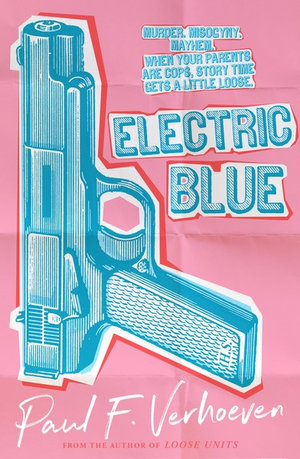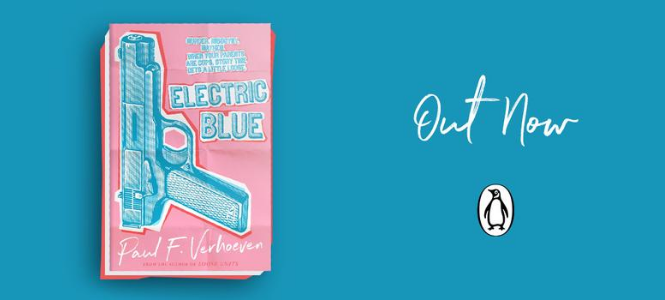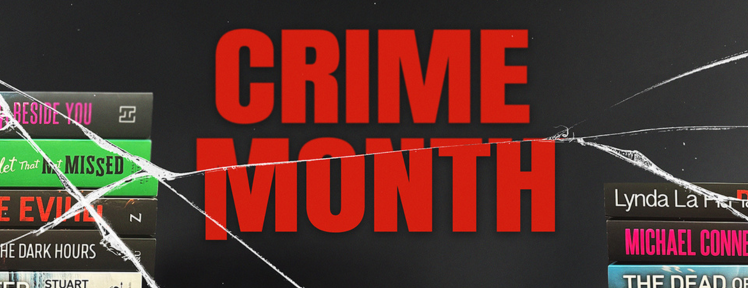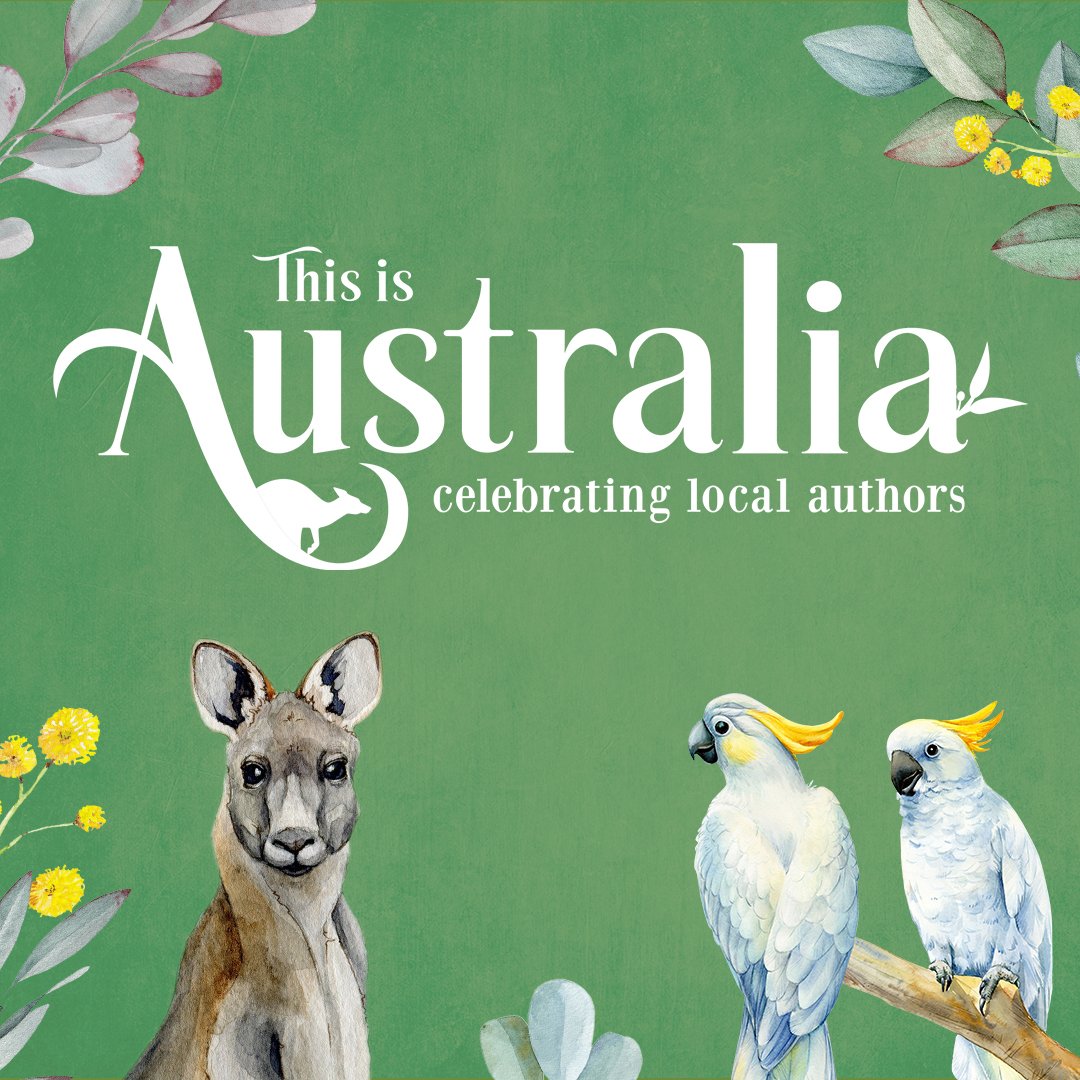Paul F. Verhoeven is a writer, broadcaster and entertainer. A mainstay of the Australian media landscape, he has written for ABC News Online, IGN, Smith Journal and Yen Magazine, and has spent years working extensively as a games journalist. After beginning his career hosting Weekend Breakfast on Triple J, he went on to host and write Steam Punks on ABC-TV, and currently co-hosts the critically acclaimed podcast 28 Plays Later and Loose Units.
Paul’s new book, Electric Blue, is the incredible follow-up to Loose Units, and today’s he’s on the blog to answer some of our questions about it. Read on!
Tell us about your book, Electric Blue!
PFV: Well, it’s a big, bold, funny adventure based on stuff my Dad lived through during his time in forensics in the New South Wales Police Force. Dad and I have a really unique, fantastic father and son relationship, but I wanted to figure out why I didn’t turn out like him. Larger than life. Brave. Heroic. So I’ve taken a whole bunch of genres I love – true crime, black comedy, adventure stories, and a few others – and slammed them into each other to create this frankly kind of bonkers book about fighting crime.
This is the sequel to Loose Units, the story of your dad’s career as a policeman. What made you want to return to this story?
PFV: Well, at the end of Loose Units, Dad wrapped up his stint in general duties (the uniformed cops, basically), and wanted to become a detective. But the detectives were too scary and corrupt for him, so he went into forensics. What blew me away was that he ended up doing detective work in forensics anyway! And he had so many incredible stories left untold, stories I was determined to mold and shape into a proper, bombastic, and hopefully very funny narrative. Plus, at the end of the last book I basically promised readers I’d be back for a sequel, and frankly, I didn’t want to disappoint anyone!
Why do you think Loose Units connected with people in the way that it did, especially after you started the podcast?
PFV: Here’s the thing … true crime is big. Very, very big. But I think in order to cut through all the noise, compete with all the other amazing true crime stories out there, you have to have something else there. One of the great things about our readers (and listeners) is that they regularly reach out to talk about father and son relationships, and that’s something I’ve really tried to make a focal point of the series. It’s one thing to hear about horrendous, sometimes hilarious crimes, and it’s another entirely to have a son interrogate his Dad about cases he was involved in.
I also really wanted to explore what it’s like to have a heroic Dad and deal with the expectation involved, and to delve into some of the issues Dad and I have. Making the books, and the show, has brought us immeasurably closer together. It’s been absolutely brilliant, and it’s been an evolution. I think that’s something that people connect with: as you read and listen, you’re watching a father and a son grow to understand one another better. Oh, and make fun of one another. A lot.
Is there a story of your dad’s that still shocks or fascinates you?
PFV: Electric Blue actually houses some of the stories that I was really nervous about taking and adapting into tall tales. I’ve never seen a dead body, so I was pretty hesitant to try and capture what it must feel like to confront death in such a real, vivid way. There’s a story involving an industrial accident, where a young guy was trapped in a vat and burned alive. I ended up paring that story way, way back for the book, because it really wasn’t about the details, it was about what it did to Dad’s character emotionally. That story shocked me, and I’m sure it’ll make readers feel the same.
As for fascinating me? Well, there’s a case towards the end of the book which takes place in Ku-ring-gai Chase National Park. It involves a body being found there, buried in a pretty shallow grave, and Dad had to dig it up with a couple of detectives. What captured me about this story was that things went kind of south for Dad, in ways I won’t spoil, but the end result was that Dad and I got to really dig deep (no pun intended) into what it means to make catastrophic mistakes.
There’s a cultural narrative of heroism in Australia around certain professions such as policing. How much of an impact do you think this had on the way you saw your parents growing up?
PFV: An indelible one, for sure! I grew up watching and reading about heroic characters. It didn’t matter if they were on the bridge of the Enterprise, in the cockpit of the Falcon, roaring around in a TARDIS or solving crimes in London whilst wearing a deerstalker. On the one hand, I had an ocean of fictional heroes, and every day my parents were carrying out actual heroics (at least, that’s what it felt like). Perhaps it made them a tad unreachable. Dad used to store his case files in our walk-in wardrobe, up the back in these cardboard boxes, and one day I accidentally fell into them and knocked one open. I swear, it was like opening the Ark of the Covenant. But I didn’t actually inherit any of our cultural hero narrative around cops; I just connected my parents with fictional crime-fighters, which, if anything, may have made reaching their level seem even less likely. Now, though, I understand how remarkable they really were.
 Electric Blue also contains some of your mum Christine’s stories about being a female cop in the ‘80s. Can you tell us a little bit about that?
Electric Blue also contains some of your mum Christine’s stories about being a female cop in the ‘80s. Can you tell us a little bit about that?
PFV: Mum isn’t like Dad. She doesn’t like to make a big deal about her adventures. But during the recording sessions for season two of the podcast, I went for a few pints with her, then twisted her arm a little and got her into the recording studio. It honestly took about five minutes before she suddenly opened up, and began revealing that she was one of the first uniformed women on the New South Wales Police Force to go out on patrol and do actual police work. She was on Romeo Squad, dealing with sexual assaults, and had a really tough time dealing with the pretty rampant misogyny on the force. It was incredible watching her light up and talk about how she (quite literally) ran circles around her male counterparts, and frankly, I’d like to get her on the record again if I can! Honestly, after years of hearing Dad’s stories, it was exhilarating to find out that my Mum was just as heroic, if not more so, than Dad. I didn’t realise how much of a pioneer she truly was until I got her in front of the mic, and turning her experiences into stories in Electric Blue was a real joy.
You use dark humour to talk about some pretty heavy subjects in both books. Was that an intentional choice or something that happened organically as you listened to your dad’s stories and started writing about them?
PFV: Dad has a very dry, dark sense of humour, which isn’t surprising given how much he dealt with. But my background is comedy, and I’ve always believed humour is a fantastic way to release tension, to add nuance to a narrative. So when I was turning his cases into stories for Electric Blue, I worked really hard to inject that humour into the fabric of the tales being told. It was very intentional, and whilst much of it was crafted and structured, you’d be surprised at how often people who work in the emergency services deploy gallows humour to deal with harrowing situations!
How do you think policing in Australia has evolved since the 1980s?
PFV: I’d like to say immensely. Oversight has come a long way, as has accountability. But there are obviously massive systemic problems with policing the world over. As Dad says, though, most people who sign up just want to help people, and contribute to their communities. We’re very lucky in Australia to have so many fantastic officers out there working hard to hold things together, rather than break them apart as they do so often in, say, the United States. But Aussie policing is, I assume from my limited interactions, unrecognisable from where it was in the ’80s.
What do you hope readers will get out of Electric Blue?
PFV: I hope they come for the true crime and the gritty stories, and stay for the narrative I’ve woven. Everything in Electric Blue is based on true events, on things that Dad experienced during his time in forensics. But it’s also got big, bold splashes of semi-fictionalised weirdness, some avant garde storytelling, a lot of father and son bonding. It flashes forward into Dad’s time running a funeral home in the late eighties, and features, as we’ve established, my Mum. Essentially, because of my ADHD, I wanted the book to be ten things at once. I hope readers are as overstimulated and excited reading it as I was writing it, and I hope they come away releasing that parents are flawed, complex and fascinating if you have the time, or inclination, to sit down and really figure out who they are.
And finally, what’s up next for you?
PFV: Believe it or not, a production company has optioned the rights to turn Loose Units into a TV series! We’re in the early stages, but it’s shaping up to be something very special (and very ambitious). The Loose Units podcast is continuing, and we’re planning a bunch of live shows for when we’re allowed to travel again, and I have ideas cooking for the next book in the series, too.
Thanks Paul!
—Electric Blue by Paul F. Verhoeven (Penguin Books Australia) is out now.
This book is one of our Father’s Day Essentials! Order in-stock items by 25th August for the best chance of delivery in time for Father’s Day.

Electric Blue
Murder, Misogyny, Mayhem.
The riveting, darkly funny stand-alone sequel to Loose Units.
Paul Verhoeven’s ex-cop dad, John, spent years embroiled in some of the seediest, scariest intrigue and escapades imaginable. One day John offered Paul the chance of a lifetime: he’d spill his guts on tape. What unfolded in Loose Units was a goldmine of true-crime stories, showcasing John’s dramatic experience of policing in Sydney in the 1980s and brilliantly twisted sense of humour. But what happened...








 What do we know about the Boy Swallows Universe Netflix show?
What do we know about the Boy Swallows Universe Netflix show?  Booktopia’s top thrilling fiction picks for Crime Month
Booktopia’s top thrilling fiction picks for Crime Month  Booktopia’s Top First Nations Book Recommendations for 2023
Booktopia’s Top First Nations Book Recommendations for 2023
Comments
No comments